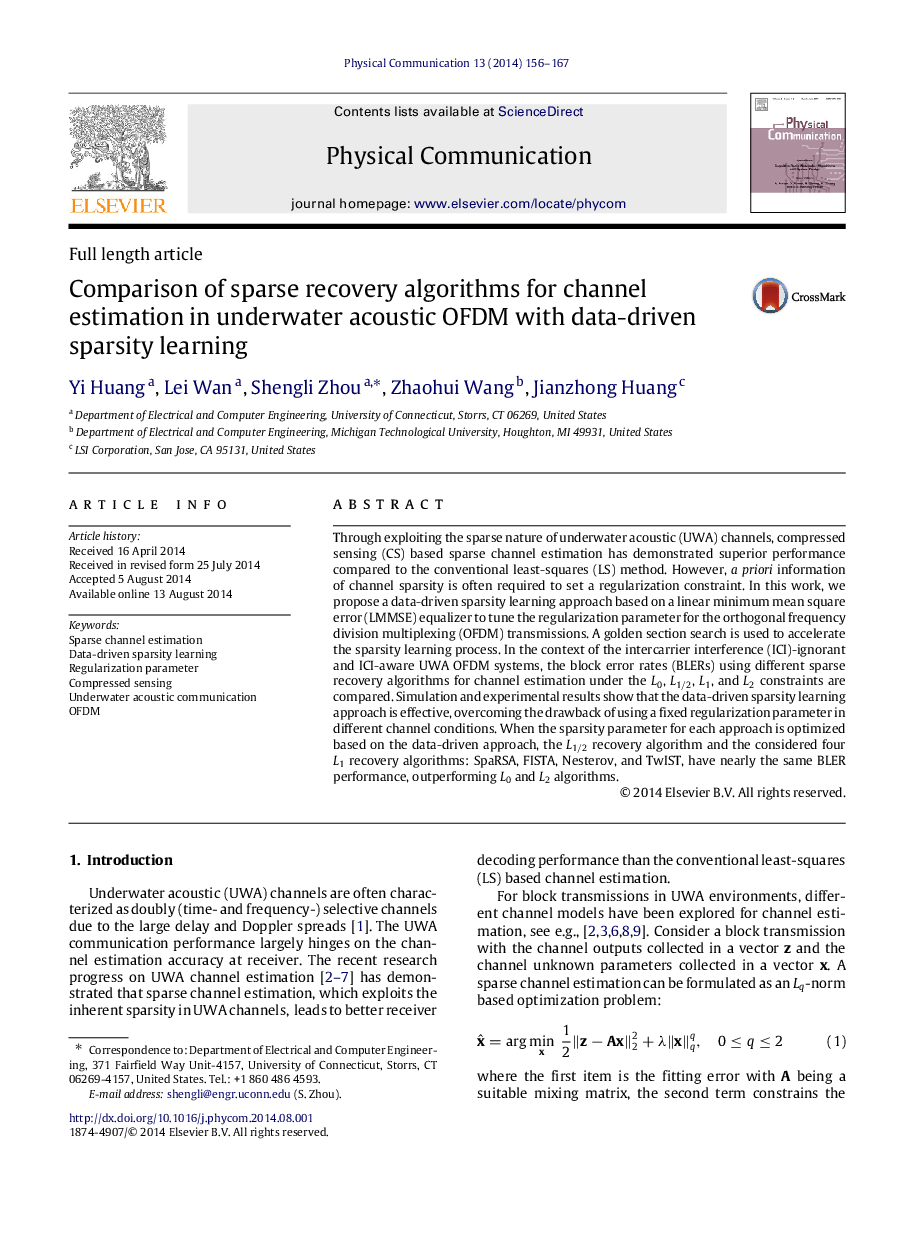| Article ID | Journal | Published Year | Pages | File Type |
|---|---|---|---|---|
| 466728 | Physical Communication | 2014 | 12 Pages |
Through exploiting the sparse nature of underwater acoustic (UWA) channels, compressed sensing (CS) based sparse channel estimation has demonstrated superior performance compared to the conventional least-squares (LS) method. However, a priori information of channel sparsity is often required to set a regularization constraint. In this work, we propose a data-driven sparsity learning approach based on a linear minimum mean square error (LMMSE) equalizer to tune the regularization parameter for the orthogonal frequency division multiplexing (OFDM) transmissions. A golden section search is used to accelerate the sparsity learning process. In the context of the intercarrier interference (ICI)-ignorant and ICI-aware UWA OFDM systems, the block error rates (BLERs) using different sparse recovery algorithms for channel estimation under the L0L0, L1/2L1/2, L1L1, and L2L2 constraints are compared. Simulation and experimental results show that the data-driven sparsity learning approach is effective, overcoming the drawback of using a fixed regularization parameter in different channel conditions. When the sparsity parameter for each approach is optimized based on the data-driven approach, the L1/2L1/2 recovery algorithm and the considered four L1L1 recovery algorithms: SpaRSA, FISTA, Nesterov, and TwIST, have nearly the same BLER performance, outperforming L0L0 and L2L2 algorithms.
